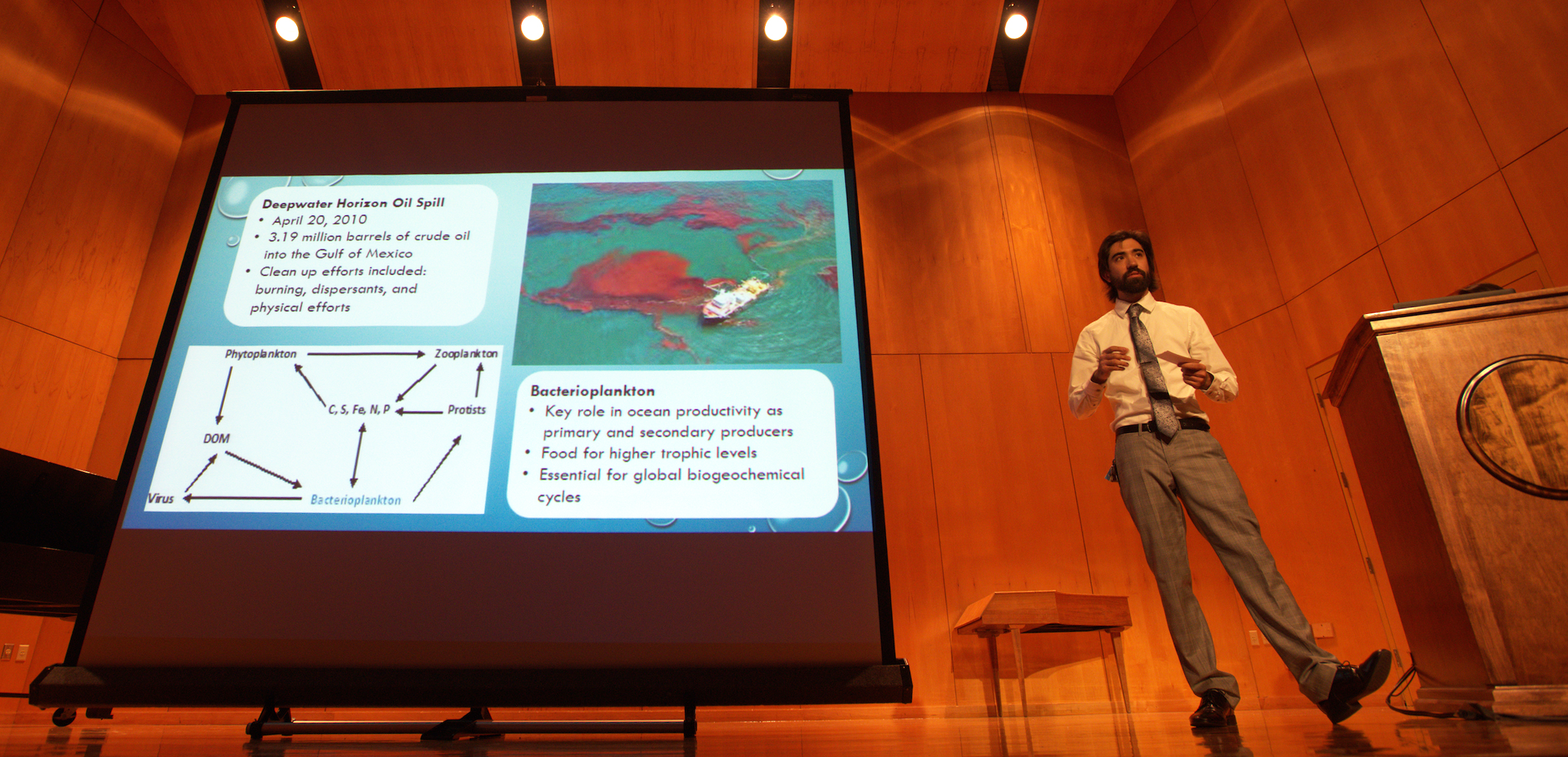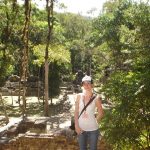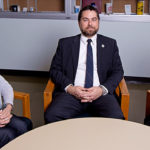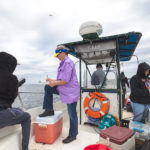Research Projects Highlighted During UWF Family Weekend Symposium
Pensacola – What most universities do with graduate students, the University of West Florida does with undergraduates, as far as research goes.

To showcase these efforts, the Office of Undergraduate Research held a symposium as part of the recent UWF Family Weekend. Through poster presentations and slide shows, undergraduates explained results of semester-long research projects to family and friends.
“I can’t put into words how much it means to get to do this kind of work as an undergraduate,” said Haley McQueen, a sophomore majoring in environmental science. “At most schools, you have to be faculty or a graduate student to do this amount of work in the lab or in the field.”
McQueen presented “Art Meets Environmental Science: An Interdisciplinary Research Experiment at UWF” along with her faculty advisor, Thomas Asmuth, who is an assistant professor of new media in the art department.
She has been helping Asmuth collect water samples and photographs for his research project on turbidity. Turbidity measures the degree to which water loses transparency because of suspended particles. It is one of the factors environmental scientists use in measuring water quality.
McQueen and Asmuth showed the Family Weekend symposium audience a grid of turbidity photographs that is designed to be both an artistic display and a collection of scientific data that shows an immediate, understandable image of a current underwater environment.
“The quality and range of research that UWF faculty and students are engaged in continues to inspire me,” said Dr. Allison Beauregard Schwartz, director of the Office of Undergraduate Research. “We will continue to focus on mentoring undergraduate researchers and supporting research in non-traditional disciplines.”
Office of Undergraduate Research support for these endeavors comes in the form of project and travel awards, a professional development program for established researchers, and an introduction to research program for novice or inexperienced researchers.
As Schwartz explains on the Office of Undergraduate Research website, research does not always happen in a lab with beakers. It is defined as “any scholarly and/or creative project in which both a faculty researcher and student are collaborative partners in examining, creating and sharing new knowledge or works in ways consistent with practices in the discipline.”
Schwartz also points out other benefits of research for students that include:
- Acquiring communication and professional skills.
- Developing critical thinking, self-confidence and creativity.
- Engaging in a deeper understanding of a discipline or potential career path.
- Strengthening preparation for graduate or professional school, or the work force.
Though undergraduate research can look vastly different between disciplines, the underlying principles are the same: exploration and discovery, Schwartz said.



